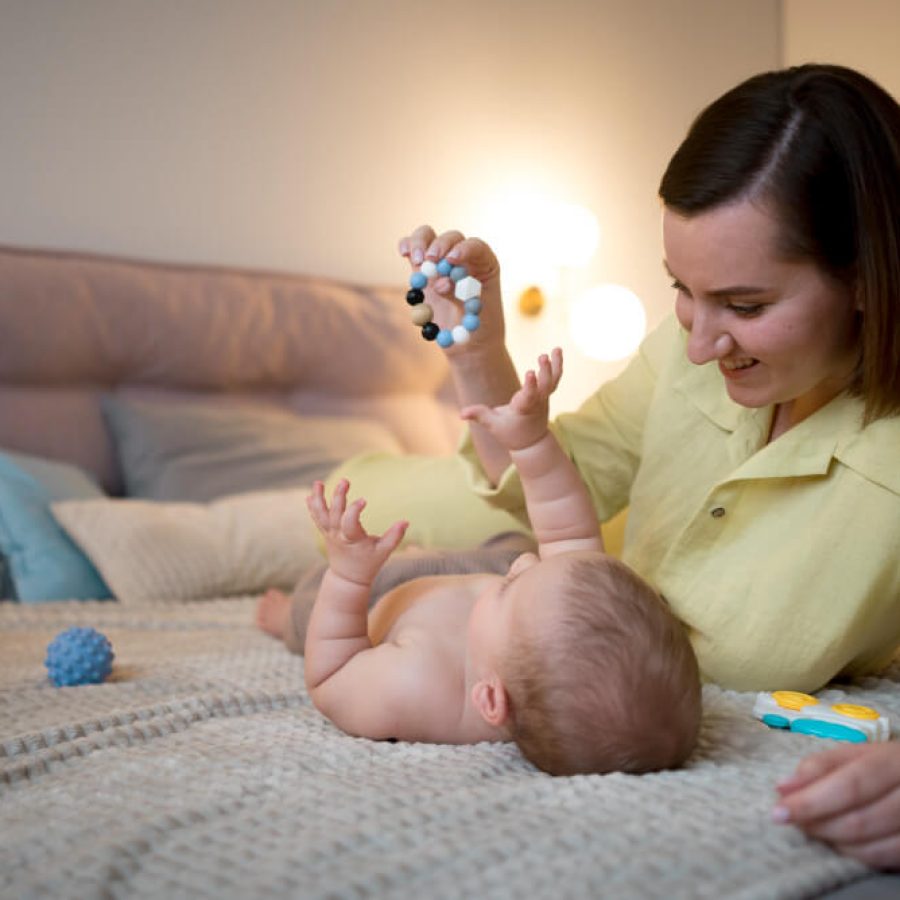Noticing how your baby grows and interacts with the world is a beautiful part of early parenthood. Sometimes, you might spot things that make you pause or wonder if everything is on track — and that’s completely natural.
Every child develops at their own pace, and small differences don’t always mean something is wrong. Still, it’s helpful to know what to look for and when to ask questions. You’ll find here some signs that may be worth observing and may help detect autism.
Understanding Autism: What It Is and Why Early Support Matters
Autism, or Autism Spectrum Disorder (ASD), is a developmental condition that affects how a child communicates, interacts, and experiences the world around them.
It is called a “spectrum” because it includes a wide range of abilities and challenges, which can appear in different ways and at different stages in a child’s life.
While there is no single cause of autism, it begins early in brain development — often before a child turns one. That’s why recognizing early signs and understanding your child’s unique way of engaging with the world can be so meaningful.
Living With Children in the Spectrum
When autism is identified early, families can begin offering tailored support that helps the child thrive.
Early guidance can make it easier to build communication skills, encourage social interaction, and navigate everyday routines with more confidence and connection.
With the right tools and understanding, children with autism can reach their full potential in a warm and supportive environment.
Early Signs of Autism in Newborns
While autism is usually diagnosed after 18 to 24 months, some symptoms can appear even in the first few months of life.
These are often subtle and may vary from one baby to another. Limited or no eye contact, no interest in facial changes, lack of social smiling, and not responding to sounds or their name are some examples.
Noticing one or even a few of these signs does not mean a child has autism. Every baby develops at their own pace, and differences are not always cause for concern.
What matters most is staying connected with your Little One as they grow. If you have questions, a trusted healthcare provider can offer thoughtful guidance.
What Parents Can Observe at Home
You don’t need special tools or training to observe signs of autism in newborn and infants. Simple, everyday moments can offer valuable insights when you pay close attention.
Notice if your baby is responsive: this means responding to your voice, following your face with their eyes, or showing emotional reactions like smiling or cooing when stimulated.
Delays in motor development, like not being able to hold an object or standing in specific positions could also be an indication of autism.
However, being overvigilant is not as helpful as staying curious and observant to your child’s signs of development.
You’ll learn more about your child’s cues and needs by spending quality moments together.
This helps you understand your baby’s personality and preferences, as well as building trust and comfort while laying the foundation for healthy development.
It also helps catching any important behaviour and observing it with time and patience.
The Value of Pediatricians When Identifying Autism
Talking to a pediatrician can provide valuable clarity and reassurance for parents. These conversations are not about rushing to conclusions but about understanding your child’s development.
Professionals can help identify if any concerns need further attention and guide you through the next steps, creating a safe space to ask questions and share observations.
If signs continue over time, early intervention can make a positive difference in your child’s growth and learning. Getting help sooner often leads to better outcomes and stronger support networks.
Remember: reaching out is a proactive way to care for your Little One’s future. Pediatricians are there to walk alongside you on this journey, offering expertise and kindness.
How Love and Connection Support Development
Recognizing the signs of autism in newborns and infants is a crucial step to help parents plan the best strategy to support their Little One.
Regardless of their condition, all babies grow best when surrounded by care, play, eye contact, gentle touch, and conversation.
Simple acts like singing, smiling, or reading together help build strong emotional and cognitive foundations.
Asking questions and seeking information show your love and attentiveness, not just concern. Trusting your instincts and staying open supports a nurturing environment where your child can truly flourish.
Curious to better understand each stage of your baby’s development? Keep exploring and discover how child development works in the first five years of their life!

